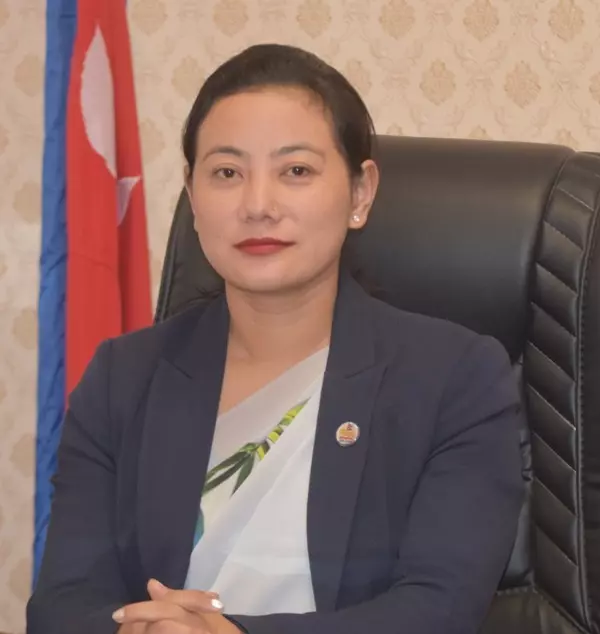Nepal’s Nepo Kids: A Generation’s Protest Against Inequality
Nepal is currently undergoing an unprecedented wave of discontent, especially among its youth. What started as a mere expression of frustration over poor governance has rapidly morphed into a full-scale Gen Z protest, with the primary target being the so-called “nepo kids” — the affluent children of influential politicians. While ordinary citizens grapple with spiraling prices, unemployment, and poverty, these privileged individuals appear to flaunt their wealth without a care in the world.
Why Are Gen Z Protesting in Nepal?
The uprising began as a grassroots movement against corruption and governmental ineptitude. Thousands of young Nepalese have taken to the streets, demanding actionable change and accountability. The situation escalated when clashes with police resulted in at least 31 deaths and over 1,000 injuries. Public buildings, private residences of political leaders, and even tourist accommodations were set ablaze. With the Parliament in flames and the Prime Minister resigning, Nepal stands at the precipice of a political crisis.
For many participants, this turmoil extends far beyond mere leadership failures. It symbolizes a generational frustration: while ordinary families struggle to make ends meet, the children of politicians — the nepo kids — bask in luxury, driving expensive cars, wearing designer clothing, and vacationing abroad, often posting about it on social media.
Who Are Nepal’s Nepo Kids?
The term “nepo kids” refers to the children of powerful political figures who benefit from their family’s influence rather than their own achievements. Various young activists have spotlighted these figures, claiming they live off taxpayer money while evading accountability. Here’s a closer look at some prominently scrutinized names.
Shivana Shrestha

Credit: Insta
Shivana Shrestha, the daughter-in-law of former Prime Minister Sher Bahadur Deuba, epitomizes the nepo kid narrative. Her extravagant lifestyle, regularly showcased on social media platforms, has turned her into a symbol of excess. Reports indicate that she owns properties valued in crores while her fellow citizens struggle to afford basic necessities.
Saugat Thapa

Credit: FB
Another controversial figure is Saugat Thapa, the son of former law minister Bindu Kumar Thapa. His victory in the Chamber of Commerce is perceived as a product of family connections rather than personal merit. Critics argue that Saugat lacks the necessary background yet enjoys the comforts of wealth — luxury cars, overseas education, and a life reminiscent of a high-profile businessman.
Bina Magar

Credit: Wikipedia
Bina Magar, daughter-in-law of former Prime Minister Pushpa Kamal Dahal ‘Prachanda,’ has been placed in the crosshairs as well. During her tenure as Nepal’s water supply minister, she faced accusations of misusing her position. Allegations range from funding personal travels through state coffers to misappropriating resources meant for rural water initiatives.
Shrinkhala Khatiwada
Credit: Instagram
Even beauty queens have not escaped scrutiny. Shrinkhala Khatiwada, crowned Miss Nepal World, is accused of reaping benefits from her father’s political status. The daughter of ex-health minister Birodh Khatiwada, she leads a lifestyle characterized by luxury holidays and a glamorous social media presence. Following the grassroots protests, she saw a significant plunge in her Instagram followers by nearly 100,000.
Why Gen Z Is Angry at Nepal’s Nepo Kids
For the youth of Nepal, the fight encompasses much more than mere dissatisfaction; it represents a quest for fairness. While nepo kids flaunt their financial prowess, the vast majority of young people face unemployment, inflation, and often must migrate internationally for better job prospects. The disparity is stark and painful.
Transparency International classifies Nepal among Asia’s most corrupt nations. High-profile scandals, such as the $71 million fraud linked to Pokhara International Airport and the refugee quota scam, have exacerbated public distrust. Yet, few prosecutions have followed these scandals, reinforcing the belief that the political elite, along with their privileged offspring, are protected from justice.
The Bigger Picture
This ongoing Gen Z protest in Nepal signifies more than an effort to oust a failing government. It serves as a clarion call for equality, accountability, and the dismantling of dynastic privilege. Advocates believe this movement could have lasting implications on Nepal’s political landscape, pushing the country to finally confront the unchecked extravagance of its nepo kids.
FAQs
Q. What does “nepo kids” mean in Nepal?
It refers to the children of powerful politicians who benefit from privilege, wealth, and influence due to their family ties rather than their talent or hard work.
Q. Why is Gen Z protesting in Nepal?
The protests stem from a collective outrage against corruption, ineffective governance, and social inequality, with a focal point on the nepo kids living luxuriously amidst economic hardship for the general populace.
Q. Who are the most discussed nepo kids in Nepal?
Key figures include Shivana Shrestha, Saugat Thapa, Bina Magar, and Shrinkhala Khatiwada.
Q. What started the current protests in Nepal?
The protests originated from dissatisfaction with governmental inefficiency but evolved into a broader campaign against wealth disparity, privilege, and systemic corruption, primarily targeting the nepo kids.


